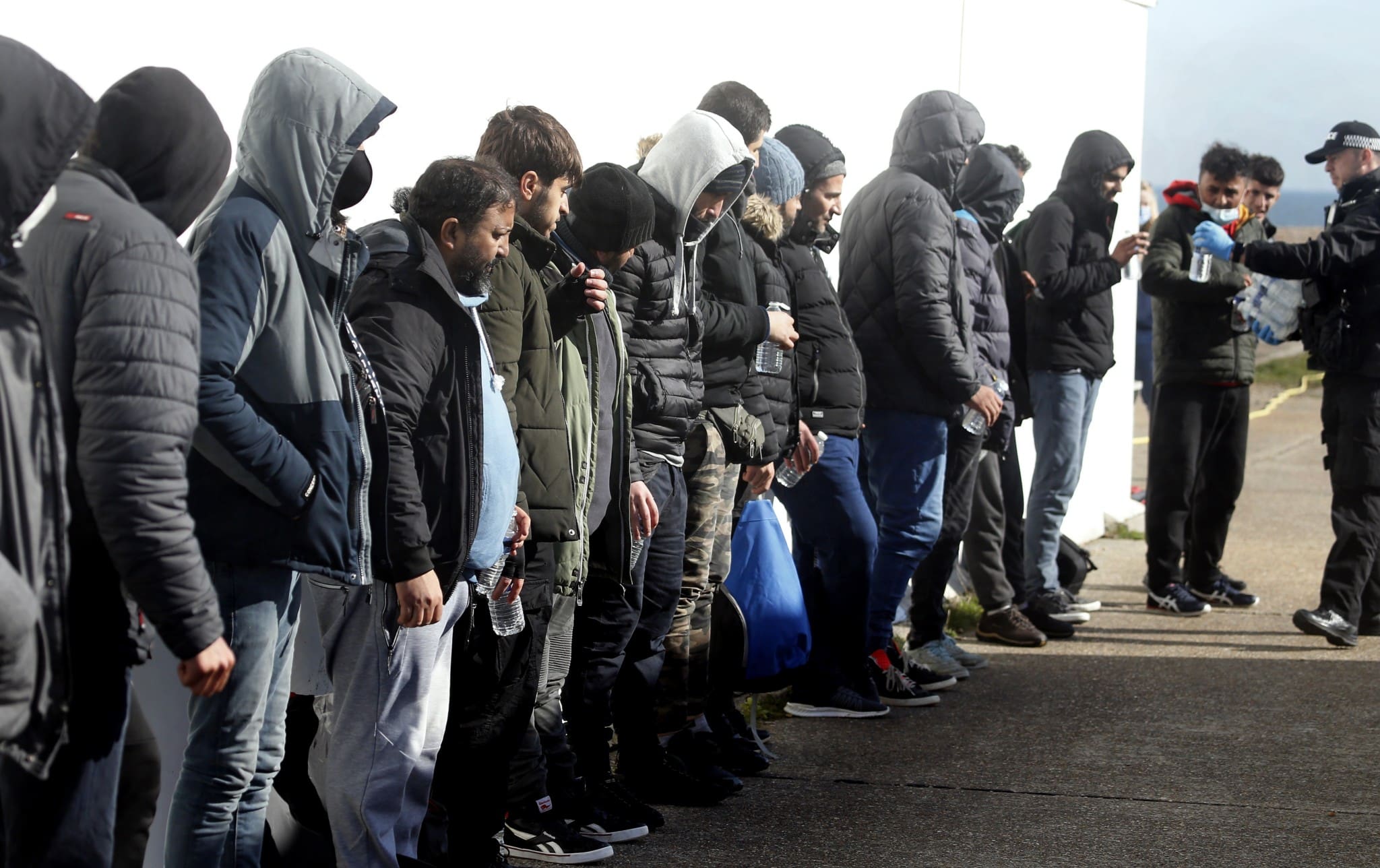More than 12,000 asylum seekers in Britain will be permitted to bypass an immigration interview and be granted refugee status on the basis of a new fast-track questionnaire.
This is a result of new rules introduced by Prime Minister Rishi Sunak’s administration in an attempt to clear the backlog of asylum applicants, some of whom have been waiting more than two years for a decision on their application.
The Home Office will soon introduce the fast-track process, which will see asylum applicants who arrived in Britain before June last year handed a 10-page questionnaire to fill out detailing their circumstances.
Applicants using the streamlined asylum service will not be required to attend an immigration interview, a one-on-one talk with an experienced immigration official who can challenge an individual’s account.
The fast-track scheme will be reserved for nationals of Libya, Syria, Afghanistan, Eritrea, and Yemen who reached Britain before June 28, 2022, although the government revealed the list of countries of origin was not fixed and could change in the future. The Home Office explained the countries had been chosen due to 95 percent of previous asylum claims being granted.
In a letter to stakeholders, Home Office officials said the questionnaire is designed for “claimants who have not yet been substantively interviewed and are one of the aforementioned nationalities. The intention of these questionnaires is to enable claimants to provide any further information about their claims which, in turn, could lead to a positive decision being taken without a substantive interview.
Criminal and security checks will still reportedly be conducted on applicants, and those with a criminal background will be required to attend an interview.
Whilst initially reserved for legacy applicants, the Home Office explained in its letter to stakeholders that it “will seek to translate the principles of thisprocess – where they operate successfully – into flow caseworking for asylum claims made on or after 28 June 2022 in due course,” suggesting vast numbers of asylum applicants could be given the green light to remain in Britain in the future based on an uncontested account handed in via a 10-page questionnaire.
Critics of the proposals, including one senior government source who spoke to the Daily Mail, branded the policy “an amnesty in all but name.”
“One major issue here is that it will encourage people from these nationalities who are not yet in the UK to come here and attempt to get asylum.
“It will also push up immigration figures because once these 12,000 have been granted refugee status they’ll be able to bring relatives here through the family reunion scheme,” they added.
Bill Wiggin, a stalwart Conservative MP, told Times Radio: “It doesn’t sound quite like the sort of ‘taking back control of our borders’ that we said we would do when we fought the last election.”
Another Home Office source told the same newspaper that the department was taking “a bit of a risk in order to get the backlog down”; however, an official Home Office statement insisted the scheme was not designed to give “blanket” refugee status to those eligible for the fast-track scheme.
“The Prime Minister and the Home Secretary are clear that we need to clear the backlog in order to be able to detain people and swiftly remove them when we have the new legislation,” the Home Office added.
The move comes as new Home Office data published on Thursday shows the U.K.’s asylum-seeker backlog has surpassed 150,000 applicants stretching back more than two years and has an upkeep bill of more than £2.1 billion (€2.38 billion) per year.
The risk factor, however, is undeniable. While 95 percent of asylum claims from the selected countries may be granted, there are horrifying examples of nationals from those countries who slipped through the net to commit atrocious acts of violence across Britain.
One such instance involved Lawangeen Abdulrahimzai, an Afghan national who was handed a life sentence with a minimum term of 29 years last month for stabbing to death an aspiring Royal Marine in Dorset last year.
Another example involved four Afghan teenage boys who were arrested earlier this month for the alleged rape of a fellow pupil at a school in Kent. The suspects were eventually released without charge after the complainant stopped cooperating with the police, sparking protests among female students outside the school’s gates this week.
Commenting on the enormous asylum backlog, Alp Mehmet, chairman of Migration Watch UK, said: “The ballooning of the backlog is inevitable. With the rate of illegal Channel crossings already greater than it was in 2022 and the level of returns minimal, the number of crossings will go on increasing.
“The only solution is to stop the illegal influx. What the government must not do is reduce the backlog by effectively declaring an amnesty in all but name. That would prove disastrous.”






